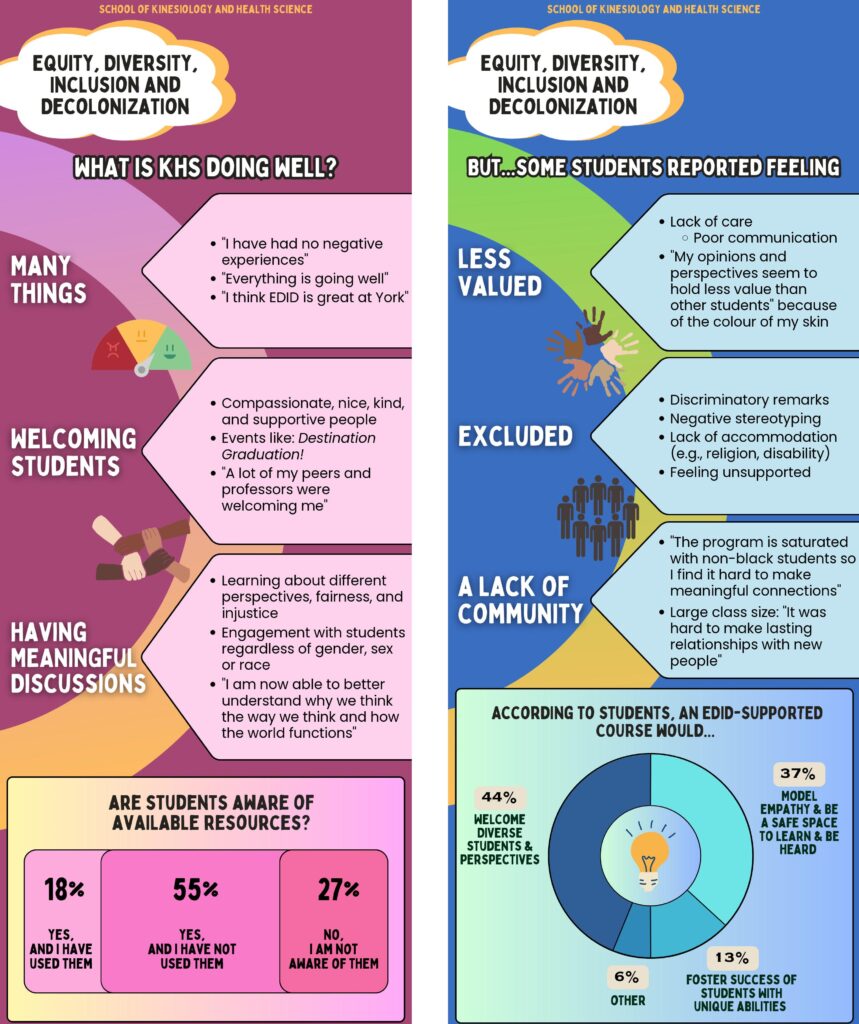Statement and Action on Equity, Diversity and Inclusivity
Version française
The School of Kinesiology and Health Science upholds a commitment to creating and maintaining a transformative, equitable, diverse, and inclusive community where students, faculty, and staff are welcome and feel safe and secure, while acknowledging lived experiences and ongoing harms.
To ensure that students, faculty, and staff can engage effectively in their work, discrimination of any kind must not be tolerated. Meaningful, focused, systemic, and sustained policies, practices, and programs, as well as individual commitment to learning, critical reflection, and professional development are needed to dismantle the hierarchies that maintain inequity and unearned privilege. Such action must be grounded in the recognition of the intersections, parallels, and differences between all forms of marginalization and oppression; and will require ongoing collaboration and action to address these obstacles to learning and working on York campus, in virtual spaces, and within York’s wider community.
As necessary first actions, the School undertook an internal audit and critical self-examination with the assistance of an external consultant to assess the equity needs and lived experiences of students, alumni, staff, and faculty through a survey and focus groups. As a result, the School identified short-term and long-term efforts to address these inequities and create positive change so that the School embraces and celebrates all members. One immediate action taken was to establish the DEDI Committee. Each year, the committee will aim to identify priorities, informed by the internal audit recommendations, broader institutional policies, everchanging contexts, and critical reflection of what DEDI means for the School and how these principles can become part of the School, its culture, and operations.
The Committee seeks to foster relationships of respect and recriprocal learning. The internal audit, ongoing data collection, relationship-building, and dialogue are vital to understanding how members of the School could engage in the critical, challenging, and ongoing work of decolonization, and fostering equity, diversity, and inclusion.
KHS DEDI Committee (Last edited February, 2024)
.
DEDI Efforts
.

